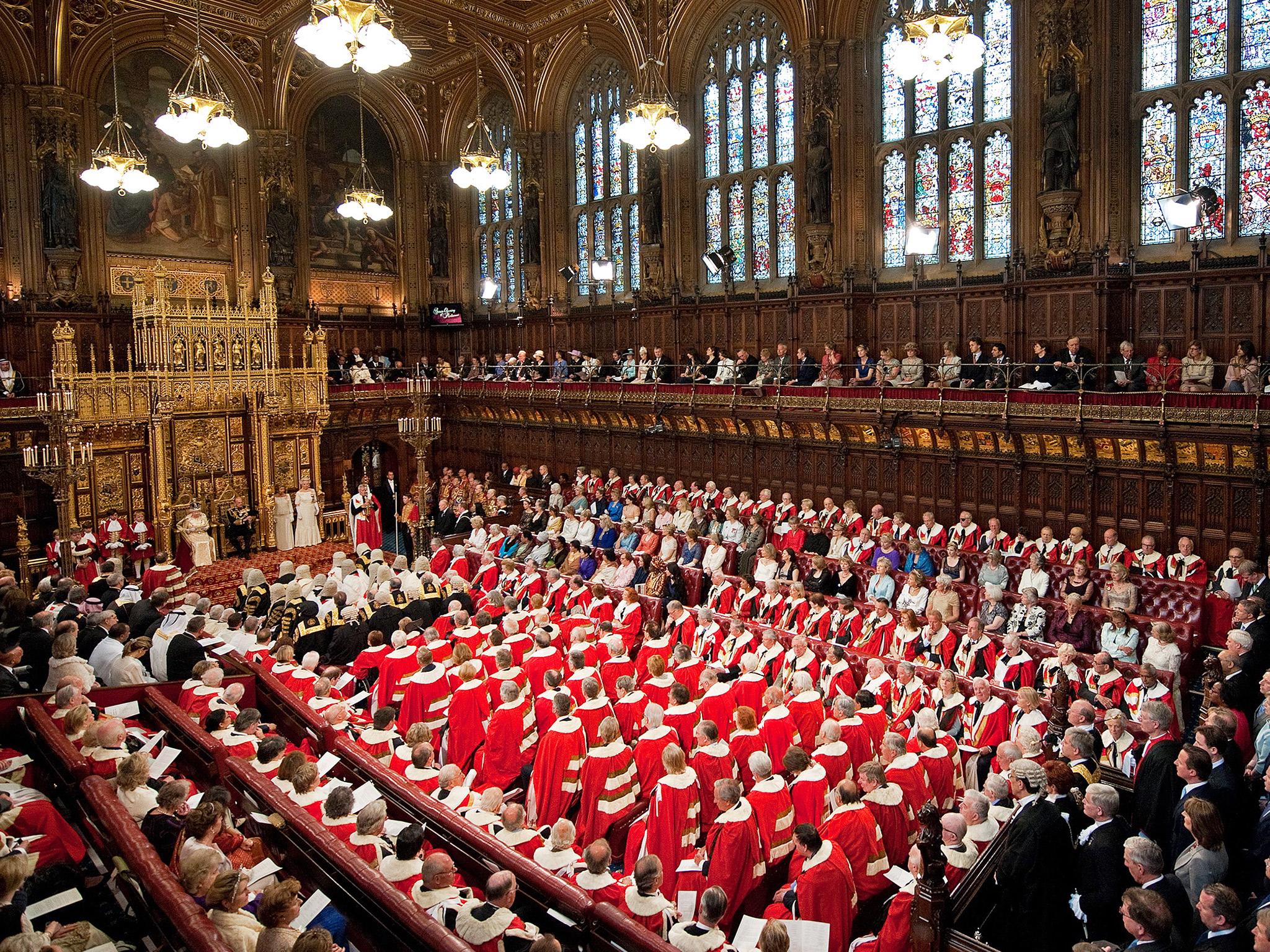Tax credits: David Cameron announces urgent review of House of Lords' powers
The PM has made clear his fury after plans to cut spending on tax credits by £4.4bn were thrown out by the Lords

Your support helps us to tell the story
From reproductive rights to climate change to Big Tech, The Independent is on the ground when the story is developing. Whether it's investigating the financials of Elon Musk's pro-Trump PAC or producing our latest documentary, 'The A Word', which shines a light on the American women fighting for reproductive rights, we know how important it is to parse out the facts from the messaging.
At such a critical moment in US history, we need reporters on the ground. Your donation allows us to keep sending journalists to speak to both sides of the story.
The Independent is trusted by Americans across the entire political spectrum. And unlike many other quality news outlets, we choose not to lock Americans out of our reporting and analysis with paywalls. We believe quality journalism should be available to everyone, paid for by those who can afford it.
Your support makes all the difference.David Cameron has announced an urgent review of the powers of the House of Lords after the Government came within a hair’s breadth of suffering a second damaging defeat at the hands of peers in 24 hours.
The Prime Minister has made clear his fury after plans to cut spending on tax credits by £4.4bn were thrown out by the Lords, arguing that the rejection of the measure by the unelected chamber raised a “constitutional issue”.
The problems he faces in the Lords, where the Tories are heavily outnumbered by Labour and Liberal Democrat peers, were underlined again when the Government narrowly avoided defeat over changes to the electoral register.
Ministers face another tight vote in the Lords on Wednesday as the EU Referendum Bill returns to the Upper House. Opposition peers are expected to seek an amendment to allow 16 and 17-year-olds to vote in the referendum – a move the Government opposes.
The review of the Lords’ powers came after Chancellor George Osborne told MPs: “Unelected Labour and Liberal peers voted down the financial measures on tax credits approved by this elected House of Commons. That raises clear constitutional issues which we will deal with.”
The Commons leader, Chris Grayling, accused unelected Labour and Liberal Democrat peers of deciding to use their weight in the second chamber to try to ”wreck the Government's programme”. He refused to rule out the possibility of creating 100 or more new Tory peers to secure a majority in the Lords.
Downing Street said the review would examine ways of ensuring that MPs are given the “decisive role” over key decisions over spending. It will be headed by the former Cabinet minister Lord Strathclyde, who has been instructed to come up with rapid recommendations.
A Number 10 spokesman said the review would “examine how to protect the ability of elected Governments to secure their business in Parliament”.
He said it would focus on ensuring the Commons enjoyed “primacy on financial matters” and pre-eminence over secondary legislation such as the statutory instrument that Mr Osborne had used to put the tax credit changes into law.
In another day of drama in the Lords, peers voted by 257 to 246 - a majority of just 11 - in favour of moves to introduce individual voter registration from December.
Labour and Liberal Democrat peers warned the plans risked 1.9m names being deleted from the register and accused ministers of attempting to “gerrymander” the electoral system to the Tories’ advantage.
The independent Electoral Commission had wanted the Government to stick to its original timetable of shifting from household voter registration in December 2016.
There are fears the move will disproportionately impact potential voters in deprived inner city areas in rented property, as well as students, leaving large numbers unable to vote in May’s Scotland, Wales and London elections.
The Liberal Democrat peer Lord Tyler led the attempt to delay the switch, arguing that the Government wanted the voters excluded so they would not be counted when the boundary commission begins work on redrawing constituencies next year.
The speeded-up deadline would see 415,000 names drop off the register in London, 231,000 in Scotland, 68,000 in Wales, and a total of up to 1.9m removed nationally, he claimed.
He said: “This is Tory gerrymandering at its worst and a cynical attempt to manipulate the electoral system in their favour.”
Before the vote, Cabinet Office minister Lord Bridges urged peers not to kill off the legislation.
“It would be killing a statutory instrument, something this House has only done five times since World War Two,” he said.
Jenny Watson, Chair of the Electoral Commission, said: “Now Parliament has approved the Government’s decision to bring forward the end of the transition to Individual electoral registration, our focus is on supporting electoral registration officers to ensure as many people as possible are registered to vote before the important set of polls scheduled for May 2016.”
Join our commenting forum
Join thought-provoking conversations, follow other Independent readers and see their replies
Comments